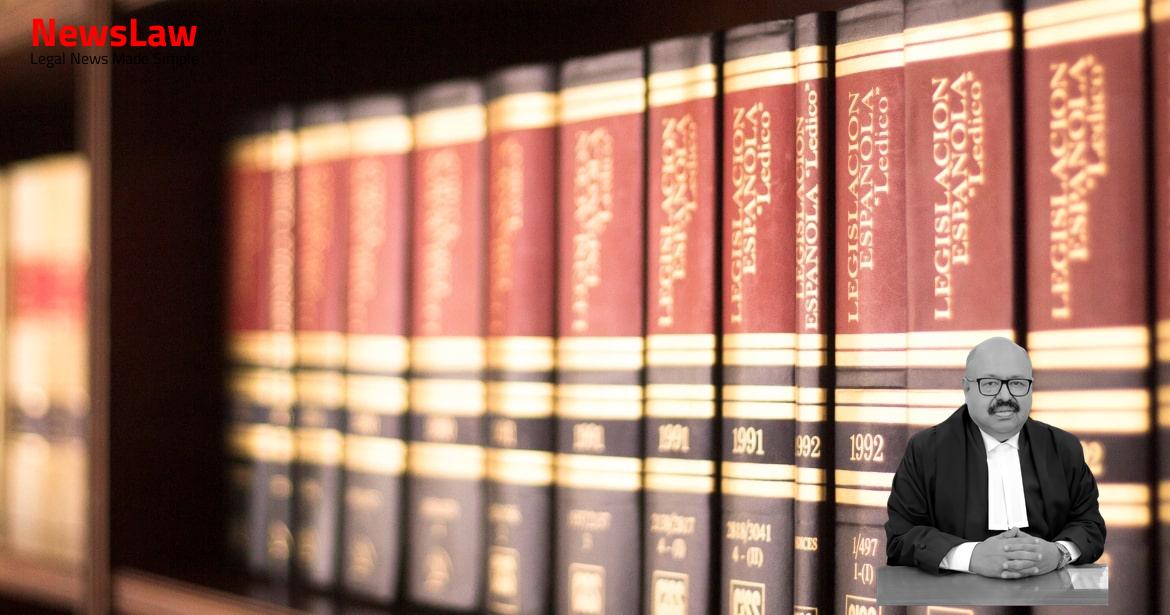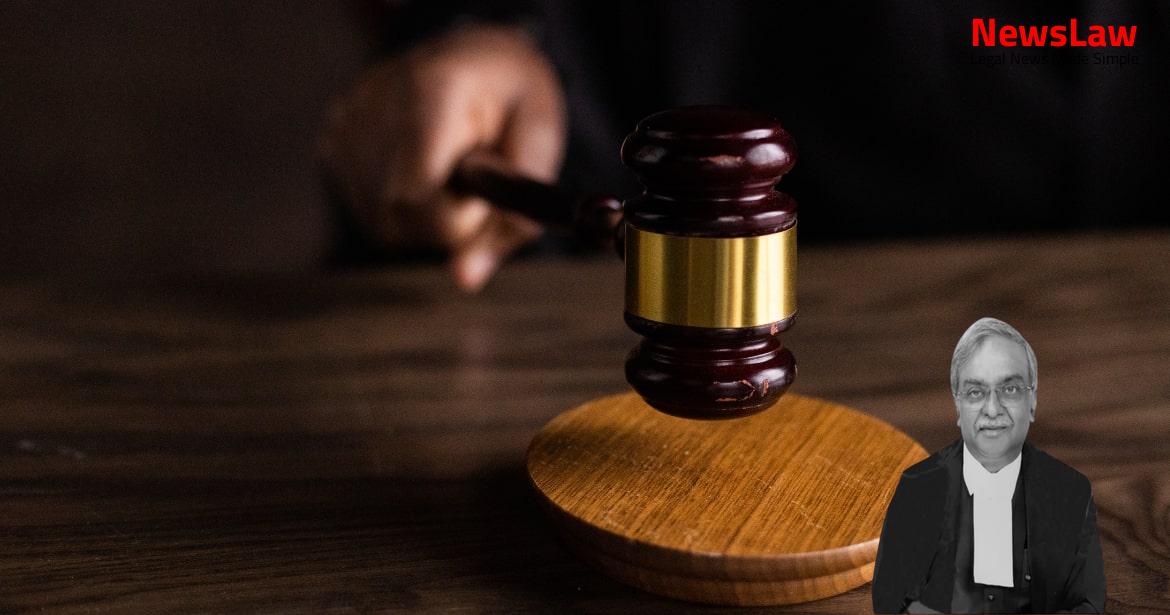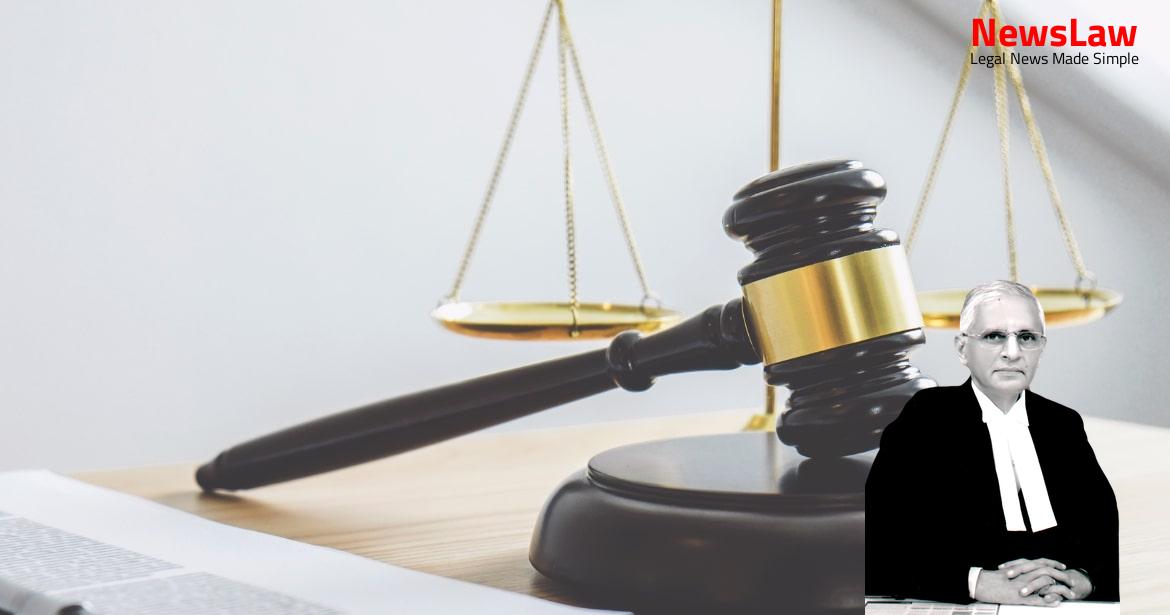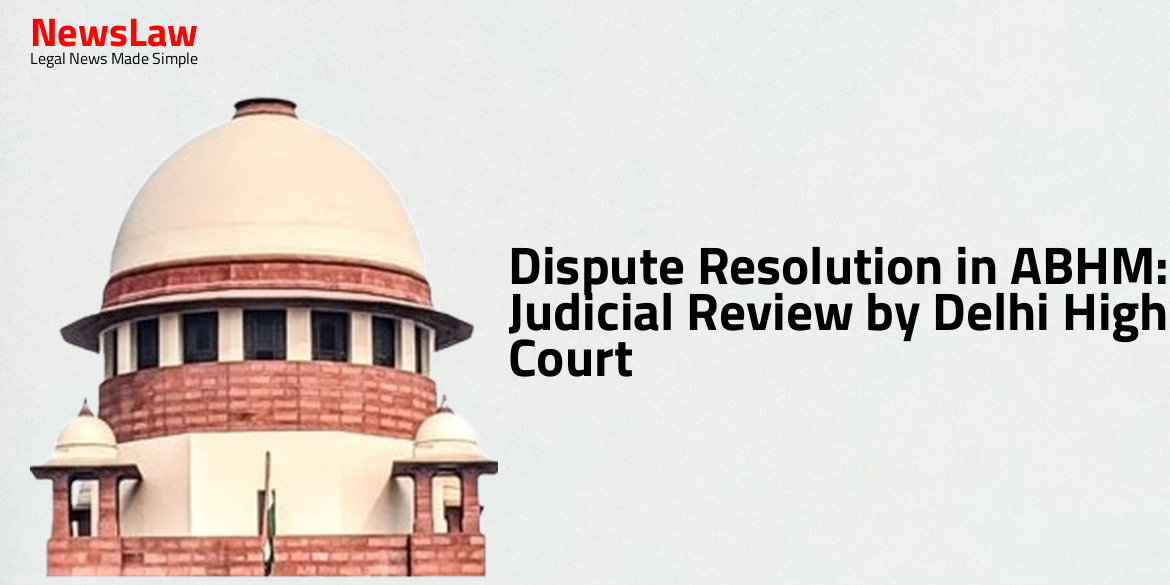Delve into the detailed legal scrutiny of disputed debts and defense presented in a recent court case. The court’s assessment of bona fide disputes and the significance of evidence in preventing winding up orders sheds light on the legal intricacies involved in debt recovery proceedings.
Facts
- Appellant had made a payment of Rs.61,83,218/-, but there was an outstanding balance of Rs.8,92,723/- as of 28.7.2008.
- Judgement challenged is from the Division Bench of Punjab & Haryana High Court in Company Appeal No. 58 of 2015 dated 29.4.2016, arising from an order in Company Petition No.106 of 2009 dated 28.9.2015.
- Company Petition was filed by the respondent seeking winding up of appellant for failure to pay admitted debts, which was admitted by the Company Judge on 28.9.2015.
- Settlement opportunity given to appellant by the Company Judge till 31.12.2015.
- Appellant raised issues regarding quality of material supplied by respondent.
- Despite repeated requests, balance amount remained unpaid leading to a statutory notice issued by the respondent.
- Appellant’s contention regarding damages from returned goods not supported by documents
- Dismissal of appeal without prejudice to respondent’s right to claim interest through other means
- No mention of oral agreement in reply to statutory notice
- Appellant’s defence deemed not bona fide or substantial
- High Court’s order staying admission notice publication conditional on payment by a certain date
- Appellant made the payment as directed by the court
- High Court determined no bona fide dispute and dismissed the appeal
- High Court did not address respondent’s claim for interest due to lack of ruling by the learned Company Judge
Also Read: Presumption of Genuine Endorsements in Cheque Case
Issue
- The court will not act upon a defense if the debt is undisputed, even if the company has the ability to pay but chooses not to.
- If the debt is genuinely disputed with a substantial defense, the court will not wind up the company.
- For the court to consider the defense, it must be in good faith, substantial, likely to succeed in legal terms, and supported by prima facie evidence.
Also Read: Medical Negligence and Compensation: A Landmark Decision
Arguments
- In the case of Vijay Industries (supra), the learned single judge admitted the company petition after finding a prima facie case.
- The respondent claims that the appellant failed to pay the outstanding amount despite multiple requests, necessitating a statutory demand notice.
- The respondent’s claim would not stand in summary proceedings under Order XXXVII of the Code of Civil Procedure, 1908.
- The requirements under Section 433(e) and (f) of the Companies Act, 1956 were not met by the appellant, according to the respondent.
- The defence of the appellant was deemed not bona fide by the Company Judge and the Division Bench of the High Court.
- The direction of the High Court to consider the claim for interest by the respondent was deemed legally unsound since there was no agreement for interest between the parties.
- The appellant’s defense was based on the claim of suffering losses due to defective material supplied by the respondent, contradicting their previous stand in the reply to the statutory notice.
- The appellant argued they were entitled to damages from the respondent, and the Company Judge should not have admitted the Company Petition based on this specific defense.
- If the company’s debt is disputed but it is evident that a debt is owed, a winding up order may still be made without the exact amount being determined.
- The court will consider the good faith and substance of the company’s defense, the likelihood of success in law, and the company’s presentation of prima facie evidence supporting their defense.
- A substantial and bona fide defense against the debt may prevent the court from winding up the company.
- The petitioner must demonstrate that the company is unable to meet its debt obligations and is commercially insolvent for the court to consider a winding up order.
Also Read: Remand of Writ Petition for Restoration and Decision on Merits
Analysis
- The Division Bench of the High Court emphasized the requirement of the entire sum, covering both principal and interest, to be undisputed in order to proceed with a petition for winding up.
- Judicial precedents such as London and Paris Banking Corporation [(1874) LR 19 Eq 444] and Re. Brighton Club and Horfold Hotel Co. Ltd. [(1865) 35 Beav 204] were cited where petitions for winding up were dismissed due to lack of agreement on the sum claimed by the creditor.
- The Court highlighted that when the debt is undisputed, the company’s defense of having the ability to pay but choosing not to pay a particular debt will not be considered valid.
- In the specific case under review, the Court noted that at least a part of the debt was not denied by the company at the time of filing the winding up application, even though the entire debt did not have to be definite and certain as per the law.
- The Division Bench did not issue a direction to grant the interest claimed by the respondent.
- The judgment in the case of IBA Health (India) Private Limited is not applicable to the present case.
- There is a substantial bona fide dispute regarding the amount claimed by the respondent Company.
- The defence raised by the appellant regarding the quality of the material supplied is considered an after-thought.
- The respondent agreed to compensate the appellant by issuing a credit note of Rs.5 lakh for defective material.
- The appellant failed to provide strong evidence to support its contentions.
- The Division Bench found it hard to believe the discussions on defective material were only oral.
- The appellant’s varying statements between the reply to the notice and written statement were used to defeat the respondent’s claim.
- There is no agreement for payment of interest on delayed payments.
- The claim for interest on delayed payments lacks concrete evidence.
- The appellant’s contention that it was an ongoing company running into profits and that the respondent’s claim was not admitted is not a legal requirement.
- Court referenced the case of Vijay Industries to support this point.
- In the case of Mediquip Systems (P) Ltd., the court found a bona fide dispute concerning the appellant’s claim.
- The claim was for a contingent debt.
- Disputes between parties had been compromised in a settlement deed.
- The defense of the appellant was found to be lacking in good faith, substance, and bona fide.
Decision
- The appeal has been dismissed with no order as to costs.
- Pending applications, if any, have been disposed of.
- The respondent company stated in a statutory notice dated 25.8.2008 that a sum of Rs.35,14,776.30 was outstanding against the appellant for material supplied as per specified invoices.
- No material has been supplied after the specified invoices, and the amount mentioned was payable by the appellant to the respondent company.
Case Title: M/S SHITAL FIBRES LTD. Vs. M/S INDIAN ACRYLICS LTD. (2021 INSC 228)
Case Number: C.A. No.-001105-001105 / 2021



